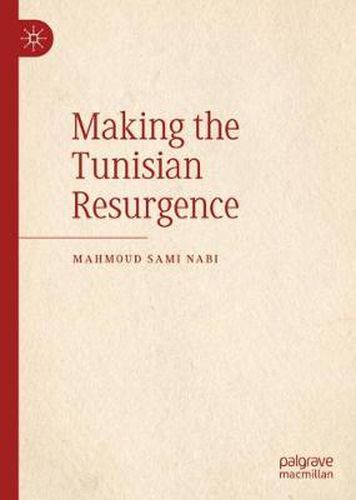Readings Newsletter
Become a Readings Member to make your shopping experience even easier.
Sign in or sign up for free!
You’re not far away from qualifying for FREE standard shipping within Australia
You’ve qualified for FREE standard shipping within Australia
The cart is loading…






This title is printed to order. This book may have been self-published. If so, we cannot guarantee the quality of the content. In the main most books will have gone through the editing process however some may not. We therefore suggest that you be aware of this before ordering this book. If in doubt check either the author or publisher’s details as we are unable to accept any returns unless they are faulty. Please contact us if you have any questions.
This book investigates the socioeconomic factors that triggered Tunisia’s revolution for dignity and the current issues and challenges facing its economy while suggesting mechanisms and instruments for their resolution. The author begins by analyzing the roots of the revolution and the post-revolution situation from a political sociology perspective and then diagnoses the Tunisian economy before and after the revolution and identifies the multidimensional binding constraints preventing it from escaping the middle-income trap. The book then explores the pillars of an inclusive development strategy that Tunisia should pursue. The emphasis is made on building inclusive institutions, developing a new social contract and reinventing the country’s leadership. Beyond the institutional dimension, the author suggests innovative financial channels, discusses the strategy of a successful integration of the Tunisian economy in the global economy as well as the pillars of its transformation into a knowledge-based economy.
$9.00 standard shipping within Australia
FREE standard shipping within Australia for orders over $100.00
Express & International shipping calculated at checkout
This title is printed to order. This book may have been self-published. If so, we cannot guarantee the quality of the content. In the main most books will have gone through the editing process however some may not. We therefore suggest that you be aware of this before ordering this book. If in doubt check either the author or publisher’s details as we are unable to accept any returns unless they are faulty. Please contact us if you have any questions.
This book investigates the socioeconomic factors that triggered Tunisia’s revolution for dignity and the current issues and challenges facing its economy while suggesting mechanisms and instruments for their resolution. The author begins by analyzing the roots of the revolution and the post-revolution situation from a political sociology perspective and then diagnoses the Tunisian economy before and after the revolution and identifies the multidimensional binding constraints preventing it from escaping the middle-income trap. The book then explores the pillars of an inclusive development strategy that Tunisia should pursue. The emphasis is made on building inclusive institutions, developing a new social contract and reinventing the country’s leadership. Beyond the institutional dimension, the author suggests innovative financial channels, discusses the strategy of a successful integration of the Tunisian economy in the global economy as well as the pillars of its transformation into a knowledge-based economy.